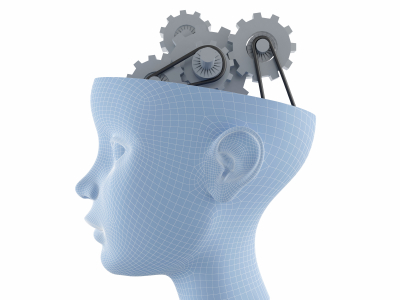In one of my previous posts I talked about four different therapies, specifically, Psychodynamic, Gestalt, Cognitive-Behavioral, and Behavioral. This week, I’ll be covering the next five therapies.
As always, I encourage anyone who is dealing with a mental health problem to seek out therapy – and therapist who melds well with your personality and values. Shop around – and I don’t mean that in a lighthearted way. And remember, a therapist isn’t there to solve your problems, but to nurture the empowerment and strength that already lies within you.
Cognitive Therapy
The goal: Cognitive Therapy, in contrast to Cognitive-Behavioral Therapy, focuses mostly on distorted thoughts that lead to unhealthy and destructive behaviors. By changing harmful thinking patterns, actions and behaviors will be impacted in a positive way as well.
What to expect: Through the use of cognitive restructuring, skill-building, education, and problem-solving, the counselor will help change the manner in which you think about yourself as well as the people and circumstances around you.
What it’s good for: Generalized anxiety disorder, depression, panic disorder, anger problems, marital problems, etc. It is also known to be useful in treating a number of medical issues, including chronic pain, hypertension, and fibromyalgia. Yup, you read that right. The premise is, what you are telling yourself about your pain (“This is horrible/unbearable”) impacts your perception of it, which can actually make it worse.
Drawbacks: Cognitive Therapy on its own may not be as effective as Cognitive Behavioral Therapy, and is not recommended for very serious disorders like Schizophrenia. Some critics believe that this school of thought doesn’t pay sufficient attention to the biological aspect of many disorders. In addition, modifying unhealthy thought patterns may not always prove useful in changing problematic behaviors.
Rational Emotive Therapy
The goal: Albert Ellis, the theorist behind Rational Emotive Therapy (RET) believed that many of our unhealthy habits and our unhappiness overall are a result of unrealistic and distorted beliefs – about ourselves and the people and world around us. RET, a type of Cognitive Therapy, attempts to change irrational beliefs that can result in destructive emotions and, in turn, behaviors.
What to expect: By changing how you view yourself and/or a situation, RET therapists believe that unhealthy emotional and behavioral patterns can and will change as well. Techniques include reframing, role-playing, problem-solving, and modeling.
What it’s good for: Depression, anxiety, stress, relationship issues, self-esteem problems, etc.
Drawbacks: This therapy may not prove beneficial if you are dealing with multiple disorders. As with most therapies, you must be willing to actively participate in your treatment.
Humanistic Therapy
The goal: Humanistic Therapy attempts to help clients achieve personal growth and fulfillment. The objective isn’t to solve your problem but to give you the tools and sense of empowerment needed to help yourself.
What to expect: In this therapy, the counselor will attempt to uncover and understand what you are feeling, but not as a means to understand your past. Rather, the objective is to improve and change your present and future. Instead of taking control of the therapy session, the counselor will provide a more empathetic but non-directive approach in which YOU become the pioneer of your own healing. The therapist will simply provide all the guidance you need, when required.
What it’s good for: Interpersonal problems, depression, relationship issues, etc.
Drawbacks: This approach may not be useful for more severe disorders and may also require longer treatment. Given that this therapy is not as direct as many others (in this case, you tend to do most of the talking), if you’re not comfortable expressing yourself, you may not benefit from this therapy.
Existential Therapy
The goal: Existential theorists focus on developing a client’s self-awareness and understanding, and showing them that they have the ability to shape and change their present and future. In essence, existential therapists believe that we are responsible for the manner in which our life has turned out so far. The meaning of life is the meaning we give it, and we are the only ones who can determine our destiny.
What to expect: In this type of therapy, the counselor will encourage and help you to take responsibility for your life and practice the freedom of choice. The therapist will attempt to explore four aspects of your life: your physical world (body, health), your personal world (relationship with yourself), your social world (relationship with others), and your spiritual world (values, ideals, etc.).
What it’s good for: This is a good therapy if you are facing major hardships or life changes, searching for meaning in your life, dealing with a terminal illness or are feeling suicidal.
Drawbacks: This therapeutic approach may only be useful to a select group of people or problems. In addition, if you have little interest in self-exploration, you likely won’t benefit from this therapy.
Interpersonal Therapy
The goal: In this approach, the therapist focuses on problems in interpersonal relationships. Interpersonal theorists believe that many psychological issues are the result of poor communication and unhealthy attachment styles.
What to expect: Therapeutic methods often include exploring unhealthy past relationships (or unresolved issues in past relationships), and helping clients clearly identify and understand their emotions.
What it’s good for: Interpersonal Therapy has commonly been used to treat depression by improving the manner in which the depressed individual communicates with and relates to others. It has also been used to treat dysthymia, bipolar disorder, anorexia, and bulimia.
Drawbacks: This therapy will require a strong commitment from you. If you are impatient, passive, or are likely to refuse to go along with therapist recommendations and techniques, you will receive little benefit from this treatment.
Join me next week for information on the next five therapies: Marriage and Family Therapy, Family Systems Therapy, Life Coaching, Positive Psychology, and Eclectic Therapy.
Insightfully yours,
Queen D



More than just blue: Top 10 signs that you might be depressed | Queendom Blog
[…] The ABC’s of T-H-E-R-A-P-Y Part 2 […]